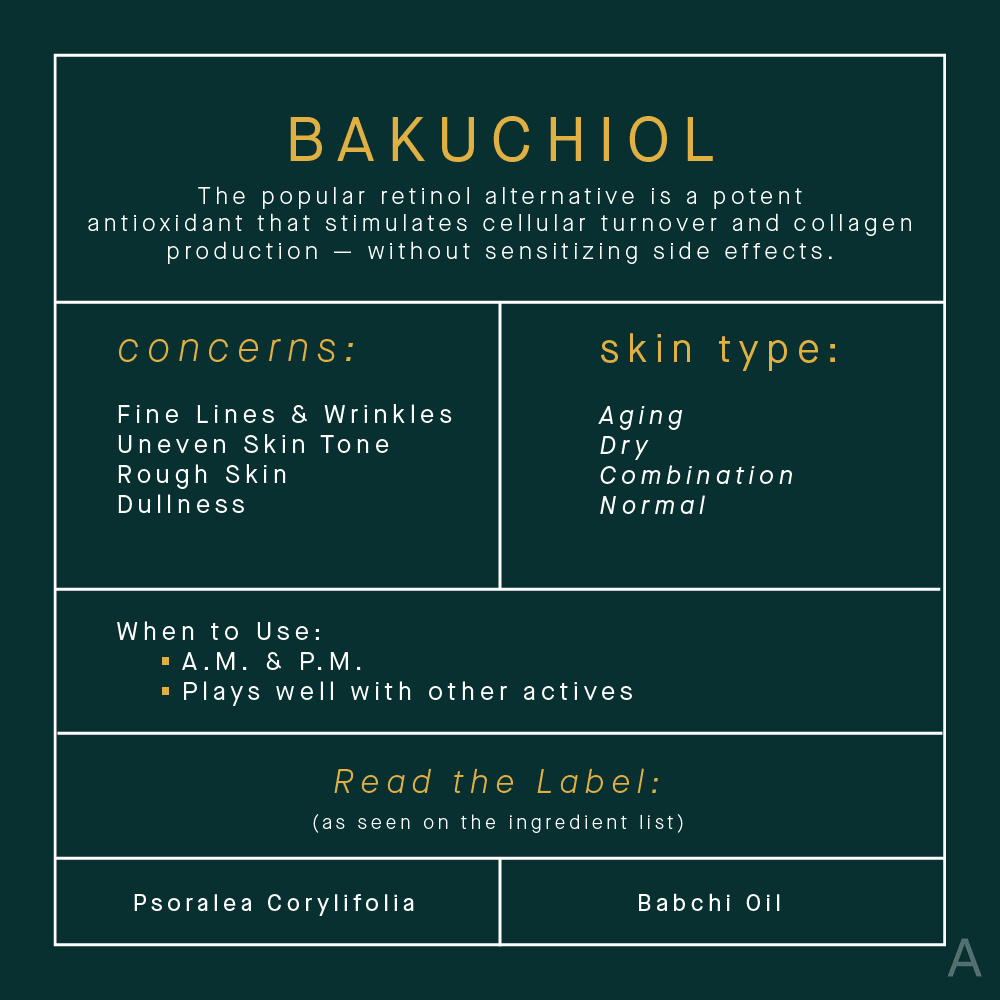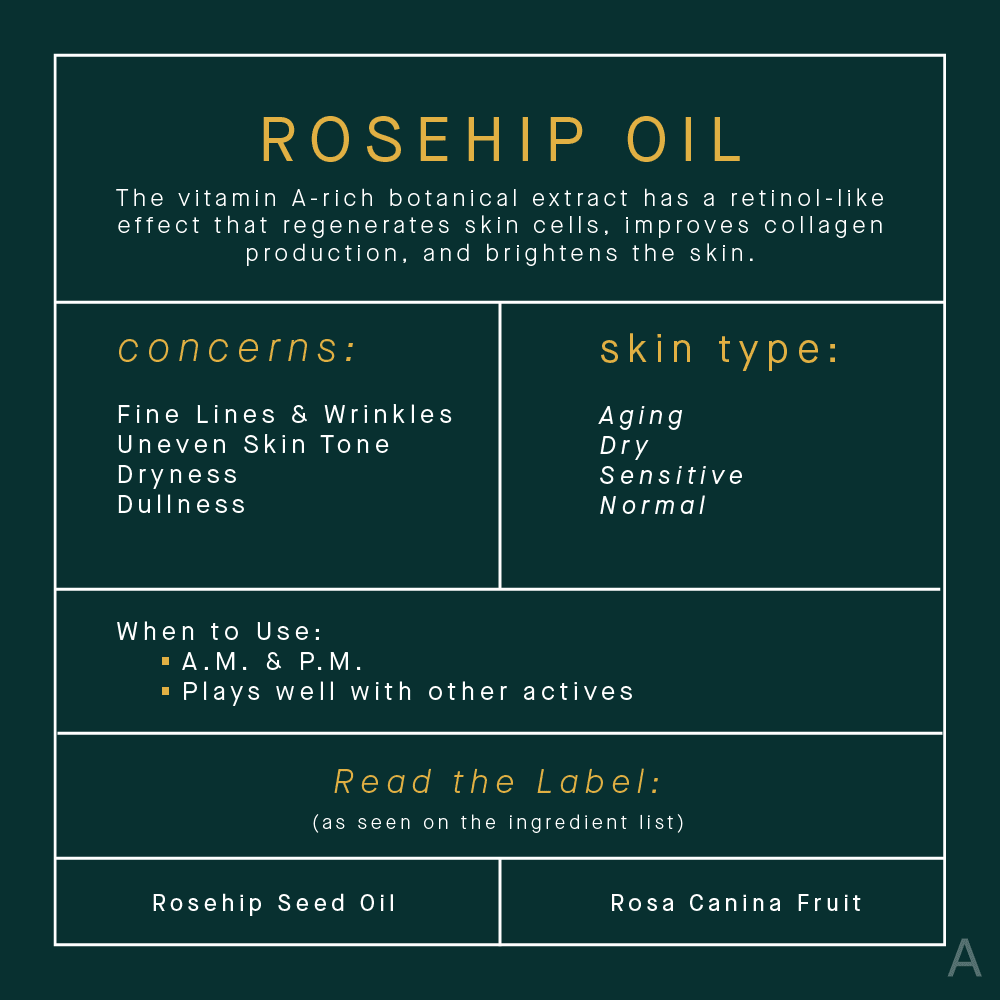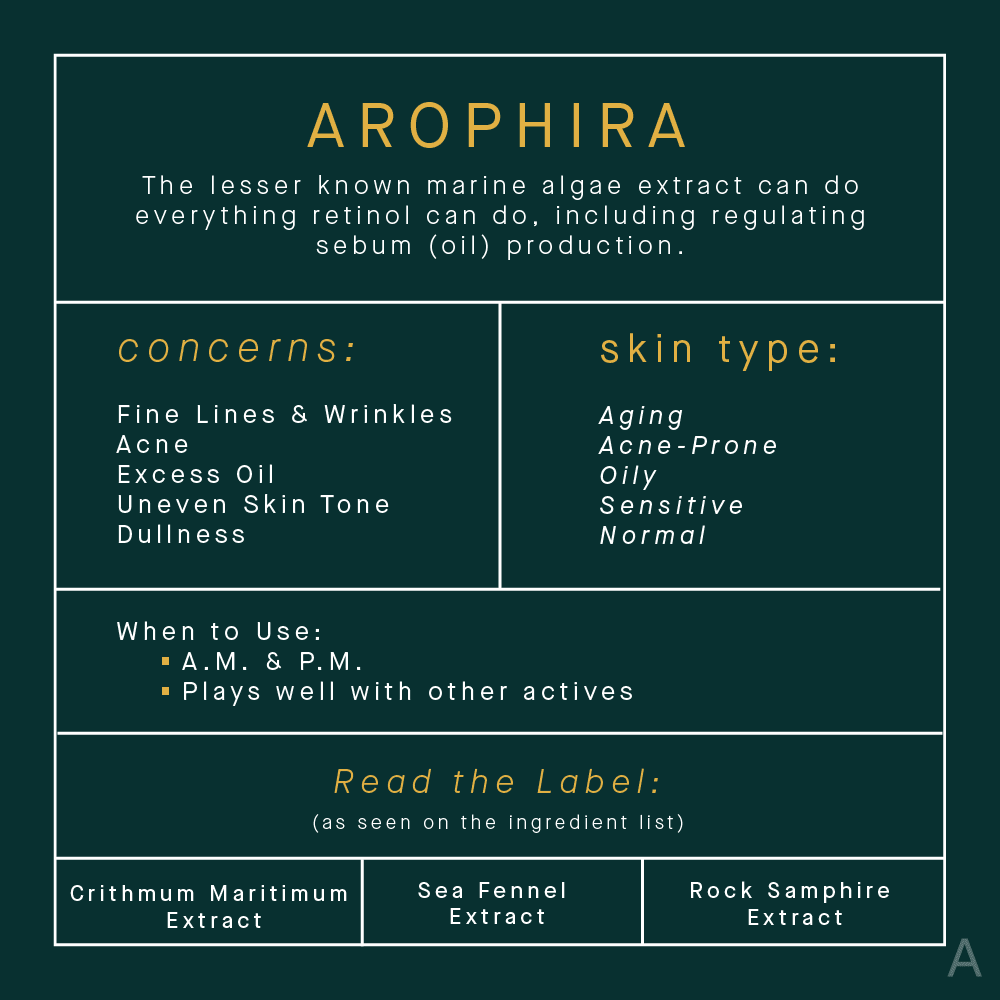 Glycolic Peel
Glycolic Peel3 Gentle Ingredient Swaps For Retinol
Yes, they can do it all, too. We spoke with a board certified dermatologist and cosmetic chemist to find out how these retinol-alternatives work.
When it comes to anti-aging, there’s one power-house ingredient that does it all – retinol. The vitamin A derivative is clinically proven to boost collagen production, increase cellular turnover, exfoliate, and brighten skin. No wonder it’s a go-to recommendation for dermatologists, plastic surgeons, and aestheticians alike to treat everything from acne and age spots to fine lines and wrinkles. But, despite its superstar status, retinol and more potent retinoids are not for everyone.
Retinol vs. Retinoid
Before you read on, it’s important to understand that there are different forms of topical vitamin A. Both retinol and retinoids contain different concentrations of the active ingredient retinoic acid, which encourages skin cells on the surface layer of the skin to turn over and make room for new cell growth underneath. Prescription retinoids (think: generic tretinoin or name-brand Retin-A and Renova) have a higher concentration of retinoic acid than the ‘retinol’ creams and serums you might find in the skincare aisle. The one exception is Differin® Gel — the first prescription-strength retinoid approved by the United States Food and Drug Administration for over-the-counter use.
Despite the varying concentrations, retinol can lead to peeling, dryness, burning, and redness for many. “Retinol can be super irritating for some people,” says Adriana Lombardi, MD, a board certified dermatologist at the Skin Cancer and Cosmetic Surgery Center of New Jersey. “If you have sensitive skin or are pregnant or breastfeeding, it’s best to use an alternative.”
Retinol Alternatives
If traditional retinol and retinoids aren’t for you, there are natural alternatives that tend to be gentler and better tolerated by the skin. Below are a few stand outs:
1. Bakuchiol

Found in the leaves and seeds of the Psoralea Corylifolia plant, bakuchiol is a potent antioxidant that has been shown to reduce signs of sun damage and pigmentation, improve skin elasticity, and reduce the appearance of lines and wrinkles. “Bakuchiol is the most popular and studied retinol alternative,” says cosmetic chemist Ginger King. “It stimulates cellular turnover and collagen and lightens and brightens like vitamin A without irritating side effects.” Dr. Lombardi recommends looking for a serum that has bakuchiol in it — like ISDIN Melatonik Serum — and using it at night when your skin naturally regenerates.
2. Rosehip Oil

Often appearing on product labels as ‘rosehip seed oil,’ the vitamin A-rich botanical extract has a retinol-like effect in that it regenerates skin cells, improves collagen production, and brightens the skin. The oil also contains vitamin C and essential fatty acids (omega-3 and omega-6), which help counteract the irritating effects that usually accompany retinol. “Because of its anti-aging and hydrating benefits, rosehip oil is great for people with sensitive skin,” King says, adding that anyone can benefit from it. She recommends mixing a few drops of the Trilogy Certified Organic Rosehip Oil (Kate Middleton is said to be a fan, too!) into your favorite moisturizer as a booster morning and evening.
3. Arophira

According to King, arophira is one of the lesser-known retinol alternatives, but she predicts it’ll gain popularity as more studies are done. In the right concentration, the marine algae extract can do everything retinol can do — and it also helps to reduce sebum (read: oil) production. “Retinols have a pro-inflammatory effect on your skin, but arophira has an anti-inflammatory effect, which will leave you with less irritation,” Dr. Lombardi explains. Try using Peter Thomas Roth Retinol Fusion Alternative nightly on a clean face before using moisturizer.
Targeted Skincare
If you’re looking to target only one or two of the skin concerns that retinol and retinoids are used to treat, there are plenty of ingredients that treat them individually. Here’s a quick guide:
Concern: Acne
Concern: Collagen Production
- AHAs
- Antioxidants
- Hyaluronic Acid (HA)
- Omegas
- Vitamin C
Concern: Fine Lines & Wrinkles
- AHAs
- Niacinamide
- Vitamin C
Concern: Dull Skin
- AHAs
- Antioxidants
- HA
- Omegas
- Vitamin C
Before introducing any new ingredient or product into your routine, patch-test a small amount on your wrist or jawline for a couple days to see if you have a reaction. If you’re concerned about sensitivity or how a new active will fit into your existing skincare regimen, be sure to consult with a board certified dermatologist.
All products featured are independently selected by our editors, however, AEDIT may receive a commission on items purchased through our links.
More Related Articles
Related Procedures

AI Plastic Surgeon™
powered by'Try on' aesthetic procedures and instantly visualize possible results with The AI Plastic Surgeon, our patented 3D aesthetic simulator.

